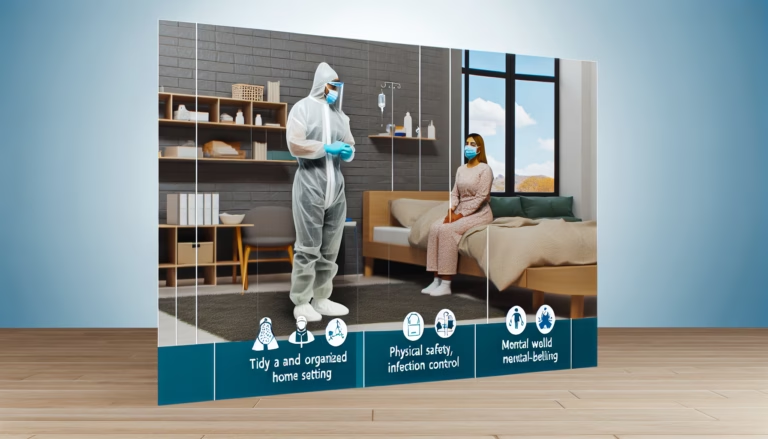Ensuring the mental well-being of home health care patients is as important as attending to their physical health. Feelings of loneliness and isolation can be common in patients receiving care at home, especially if they live alone. This article focuses on strategies that both caregivers and patients can use to improve mental well-being.
1. Regular Social Interaction
Ensure the patient has regular contact with friends, family, and social groups. If in-person visits are not possible, consider using technology to facilitate communication. Video calls, social media, and virtual gatherings can help provide the social interaction necessary to keep spirits lifted.
2. Mental Stimulation
Keeping the brain active and engaged is key to mental health. Reading, puzzles, games, and hobbies can stimulate the mind and provide a sense of accomplishment and enjoyment. Facilitate access to these stimulation sources to ensure patients can engage with them easily.
3. Physical Activity
Physical activity is linked to mental well-being. Regular exercise can combat feelings of depression and anxiety. Encourage patients to engage in suitable physical activity, such as walking or gentle stretching, assuming their physical condition permits it.
4. Healthy Diet
What we consume can significantly impact our mood and anxiety levels. A healthy diet rich in vegetables, fruits, lean proteins, and whole grains can contribute to better mental health. If a patient is unable to prepare meals, arranging for healthy meal delivery can be beneficial.
5. Regular Sleep Patterns
Lack of sleep or irregular sleep patterns can contribute to poorer mental health. Establishing regular sleep routines and maintaining a comfortable sleep environment can help improve the quality of sleep and, subsequently, mental well-being.
6. Medication Management
Proper medication management can help improve mental health. Regularly review medication schedules, potential side effects, and ensure patients are taking prescribed doses. This can help manage mental health conditions and prevent undiagnosed issues from worsening.
Remember, caring for mental health is just as crucial as physical health care. Both patients and caregivers should remain vigilant to changes in a patient’s mental state and reach out to professionals if needed. Mental well-being plays a significant role in a patient’s overall well-being and quality of life and should never be overlooked when providing home health care.



